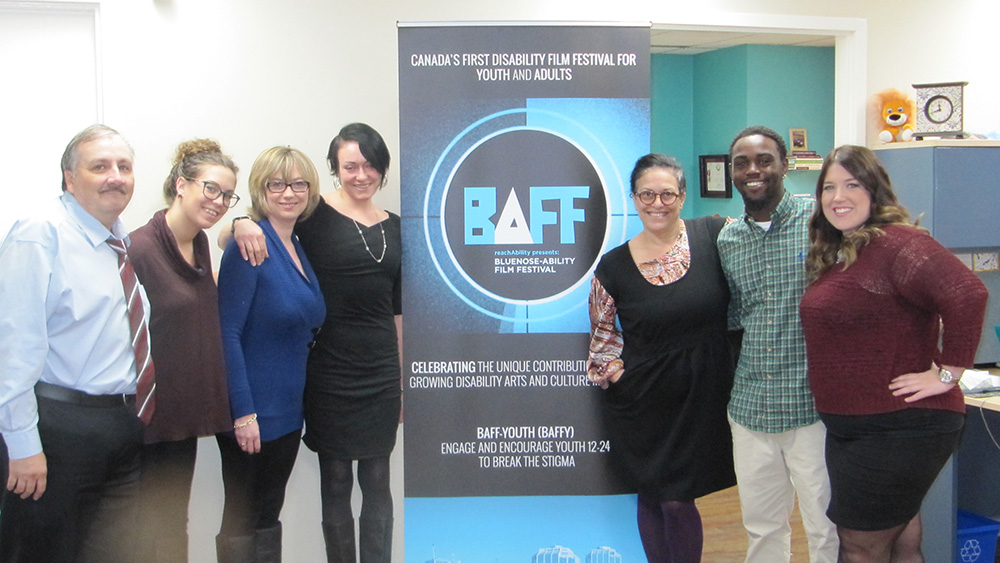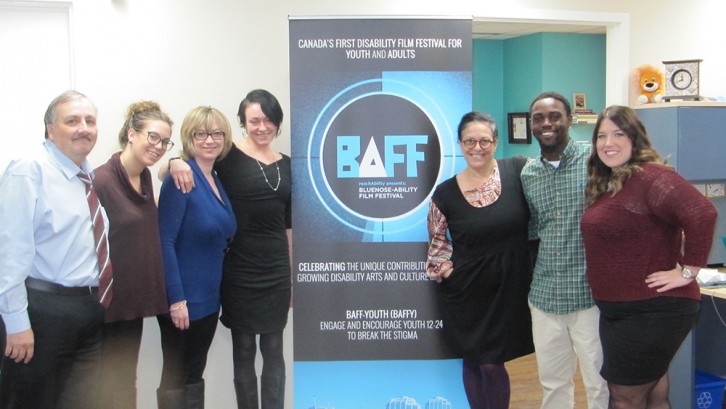Film Festival
Bluenose-Ability Film Festival success with international filmmakers, but not with local Nova Scotians
The reachAbility Association, which is running the festival, expressed disappointment over the lack of local submissions

caption
Reachability Association Staff that was working in the Blue Nose-Ability Film Festival
caption
reachAbility Association Staff are working on the Blue Nose-Ability Film FestivalThe organizers of a Halifax film festival about disabilities were shocked when local Nova Scotians submitted such a small number of films.
Nova Scotians only submitted six films to the Bluenose-Ability Film Festival (BAFF) compared to filmmakers from Iran, who submitted the most films at 119.
BAFF is the first disability film festival in Atlantic Canada, and it is scheduled to run from Dec. 3 to Dec. 5, 2015. The festival is designed to show disability culture, and what people with disabilities go through.
Despite being an Atlantic based film festival there was not a lot involvement from local filmmakers.
The reachAbility Association expressed its displeasure over the low number of local submissions in a press release on Nov. 10. The release stated there were nearly 2,000 submissions from 82 countries, but only a small number were from Canada.
Tova Sherman, CEO of the reachAbility Association, said it’s important to discuss the lack of submissions because so many people who live with disabilities feel stigmatized.
“In Nova Scotia, we have the highest per capita identification of persons with disabilities. With one in four saying, ‘Yes I have a disability,’” said Sherman.
Sherman said the number of Nova Scotians participating was even smaller at first, but the association helped get some more local films submitted.
“Last minute before we closed it we reached out, we also did our own film classes and created at least one film from a client,” she said. “So the number went up mainly because we were actually in the community trying to give film workshops.”
The Bluenose-Ability Film Festival-Youth (BAFFY) program held the film workshops for people between the ages of 12 and 24. Katrina Pyne, a lab assistant at the University of King’s College, ran the film workshops at BAFFY.
Pyne said it is the first year the festival is running so people may not know about it, and the film making community in Nova Scotia is a small one.
She said the subject of disability was another possible reason for the lack of submissions.
“I think a lot of people are also maybe intimidated about the topic which is disability culture, and I think a lot of people don’t know how to speak to something like that,” said Pyne.
Sherman also said that people often do not talk about the topic of disability in art and culture, which was why the festival was designed.
The press release said in the future the association would be looking to encourage more regional growth in filmmaking with professionals and youth.
Sherman said her organization realized it was a year-round responsibility, and they developed BAFFY to provide an avenue for people to learn about film and express themselves.
Pyne said BAFFY is a good step in the right direction. She hopes filmmakers going to the film festival could also get them interested in the subject.
“The visibility that just this first festival will promote, I think will in so many ways spur people to talk about it, and perhaps want submit their own films for next year,” said Pyne.
The reachAbility Association will announce on Thursday, Nov. 19 which films will be shown at the festival.
